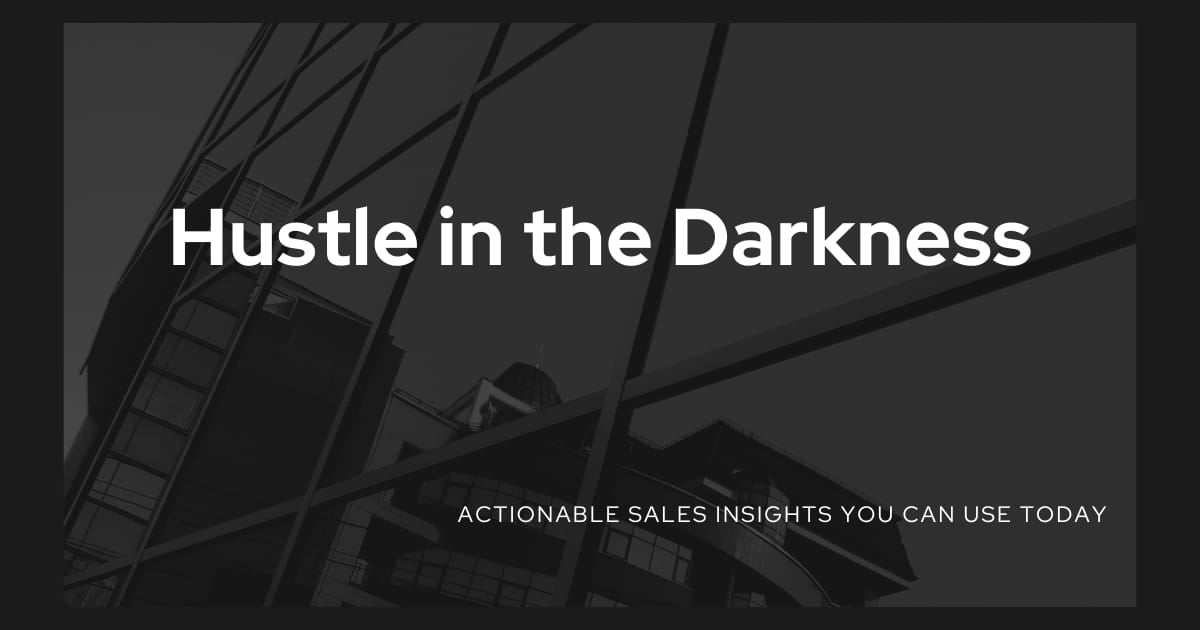Read on: My website
Read time: 2 Minutes
My first job (after working on the farm) was working as a dishwasher at the only restaurant in town.
Long hours, late nights, and dirt pay. Not a glamorous job, but we all start somewhere.
From there, I moved up to morning waiter and eventually to evening waiter. After getting some experience under my belt, I moved south to Boston and started working at Durgin Park, and experienced what it was like living in a big city. From living in a town of 400 people and going to a two-room schoolhouse to a big city, it was a different pace of life, and I needed to dive right into it. I also worked odd-n-end jobs to make ends meet (bar-back, bouncer, swim instructor, etc.).
The days were long, stressful, and always on the go. I learned many lessons from working in the hospitality industry and still carry and implement those lessons in the corporate world.
What are two of the most important aspects that I still carry over today from those prior jobs? There is always something to do, even if you have done your job, to help others get the job done.
And never piss off your kitchen staff. They make you shine when you need it most.
Was this newsletter forwarded to you?
Great sales, capture, and business development teams are like the backbone of a well-run restaurant. Just as a waiter ensures a seamless dining experience by their knowledge of the food, wine, and by wanting you to enjoy your dining experience. They also support the bussing of tables, refilling drinks, and helping wherever needed; it’s a balance of having the right mindset of responsibility, collaboration, speed, and communication.
We are going to cover the two aspects below and provide easy ways you can tackle them today.
Let’s dance.
From the Dining Experience Perspective
Even the smallest of actions you take within your business development, down to your proposal process, reflect your company’s overall commitment to quality and your commitment to your customers.
Think about the dining experience: even if the main course is perfect, a smudged wine glass, dirty silverware, or inattentive service can leave a bad impression.
And sometimes that impression doesn’t immediately go away. It can stick for a while.
Even the pettiest of things can have you rethink going back, not recommending the restaurant to friends, family, or coworkers.
Similarly, a stellar proposal can be overshadowed by overlooked details or gaps in collaboration and communication your business development and/or executive team has with the customer.
Never assume you know how your customer is going to react.
By showing care in every stage of the process, you ensure that every client interaction builds trust, demonstrating your organization’s reliability and professionalism.
There’s Always Something To Do
When the shifts start to get busy, there is always work to do. From wiping down tables, rolling silverware, or running someone else’s food when your own section is slammed, the list goes on.
These tasks don’t get tips, but they get trust. Trust amongst your peers, management, and the back of the house (bussers, chefs, cleaning crew).
Whether you’re working on a proposal, a slide deck, a business development plan, policy engagement, or whatever it might be, just because you completed what you need to get done on your end, doesn’t mean the work is done. Go support your team.
It doesn’t matter if you are in a leadership position or not, especially if you’re up against the clock (i.e., proposal deadline is approaching). If you know you can carry out specific tasks, identify them and support those teammates who need them, don’t wait for someone to ask for help.
The sooner that you can recognize a need, the quicker trust can be built. This translates into proactive ownership. The kind that doesn’t wait for permission, avoids the “not my job” trap, and constantly looks for ways to add value.
The proposal isn’t completed until it has been delivered and confirmed by the customer.
Never Piss Off the Kitchen—Because the Backend is Everything
Servers learn this the hard way: the kitchen controls the experience. Anger them, and your tables suffer. But respect them, communicate clearly, and suddenly, you’re in sync.
The lesson? Your success is rarely a solo act.
I’ve worked with servers who were straight up awful, food would be delayed, kitchen would not go out of their way to help them. Management would need to get involved as you could see the frustration bleeding out to the customer they were serving.
Those of us who were kind, communicative, showed support with the kitchen staff, laughed and joked with them, things moved quicker and more effectively, the staff went out of their way, helped us when we were overwhelmed, and much more.
It Matters
Executives, business development, sales, and policy teams are your front-facing team. They are with the customer, the are understanding where you need to be to win, building the relationships, understanding every aspect of the deals.
The “kitchen” is your product team, ops team, proposal, finance, IT—every internal partner who makes execution possible. Leaders who treat them like second-class citizens burn bridges and bottleneck their own progress. But the executives who build real partnerships across silos? You can unlock speed, resilience, and real organizational trust.
Never assume that the latest deal that is coming in the sales manager has earned the respect of the internal team, or they will go out of their way to get a proposal done.
Find Your Kitchen Hurdles
The biggest area to overcome is addressing the collaboration between two parties that is currently causing friction.
This can be: either they can’t work together, don’t trust each other, don’t want to trust each other, working with each other because they have to, or something else.
Take a week to review key times where collaboration is critical and see where the gaps are, how your team is supported, what happens naturally, where the natural leaders are, what needs your input on, and where the friction is.
This could be:
Proposal Engagement (or writing a specific section or review)
Slide Deck buildout
Customer meeting
Capture Plan assessment
You don’t want a current (or future) customer to suffer because of an internal hurdle that you can control. You also want to put your best foot forward.
That’s a you problem…not a me problem.
Want to make sure your team is understanding the customer? Check out some of my posts here:
What the Internet Taught Me This Week
From new tools, recent trends, and market updates, here is what has been on my mind.
ChatGPT has added shopping to its latest experience. Complete with buy buttons and everything. Shut up and take my money.
Government hackers are leading the way with 75 exploits so far in zero-day attacks, per recent research released by Google. Check it out here
Government workers are required to send “selfies” as part of their return to office mandates
Hospitality teaches what most boardrooms forget:
That showing up with urgency, listening without ego, and rolling up your sleeves when no one asks you to—that’s the kind of leadership people remember. That’s the kind of leadership people follow.
We are obsessed with scale, efficiency, and speed, it's easy for us to drift from the basic truths that actually sustain organizations over the long term.
Service isn't a soft skill—it’s the foundation of influence and trust.
Find and strengthen your kitchen.
See you next week.
Whenever you're ready, there are 4 ways I can help you:
Unlocking Hidden Potential - Reconnecting with Past Clients for Explosive Growth - Check out my free eBook on how you can find hidden gems in your past clients and help you crush your sales goals.
Build your Sales CRM - Download our free Sales eBook on How Your Sales Team Can Maximize Your CRM Tool. Whether it’s Hubspot, Salesforce, or another CRM tool, make sure you leverage it to your advantage.
Awesome Sales Resources - Transform your sales engagement and capabilities across Social Selling, CRM, Lead Generation, Enablement, and more.
Cribworks Advisor Program - Want more than just resources? Reach out to me and see if our Advisor Program can help you grow your business.

